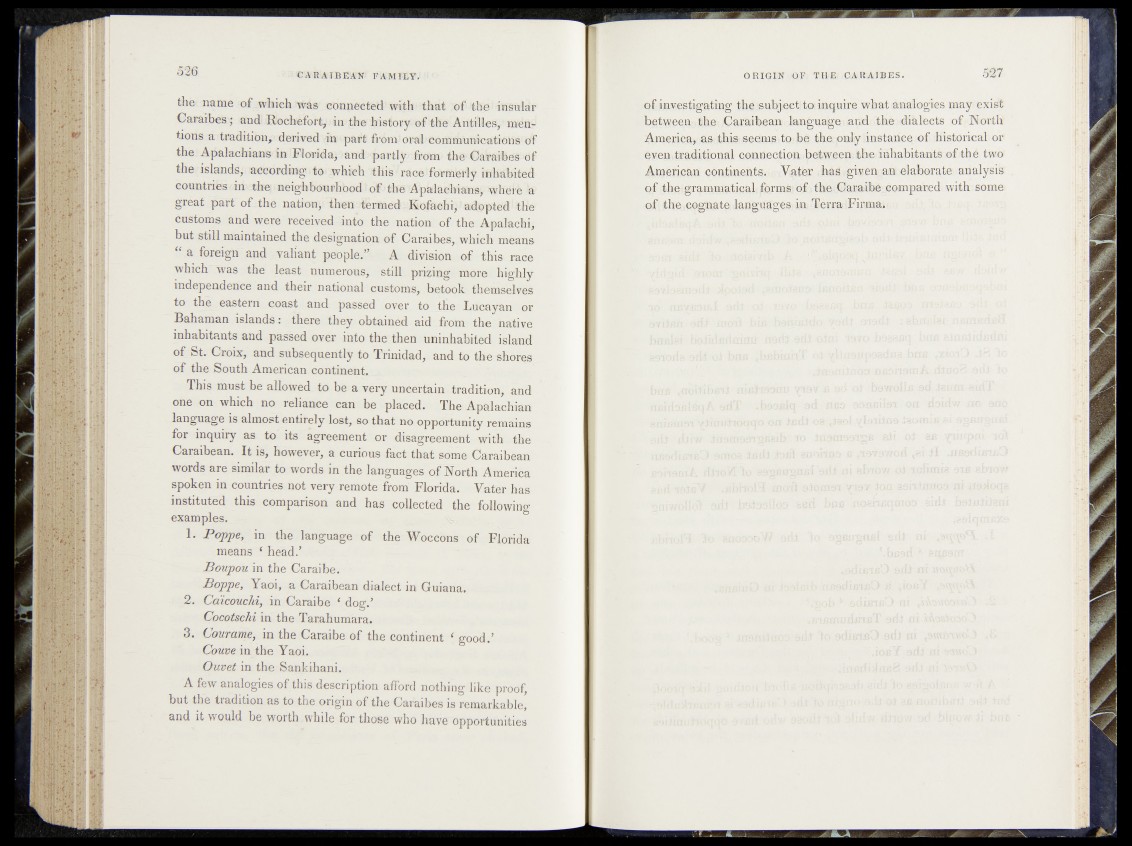
<fee< name of which was connected with that of -*i3$g‘> itiMli#
Caraibes;; and Rochefort,in the Mstopy :©f the AniAle#,» meh^
tjons^a tradition,» derived dii pa# fi^m^oraheomdinnfcai^Os'bf
the ApalaeMans in Florida, and partly from the* €li#iheS-'Sf
the -islands;, meowing < i&< which 4&feYraoejfb*aiteriy inhabited
eountrids wufe thes i ffieighbon rhbodI of* the A'p&labM&nap%hbre W
great _parf of_the nation], then ifepmerd>®ofaehij ^adopted the
customs and were received-into the nation of theApalachi,
but still maintained the designation of Caraibes,, which means
“ a foreign and valiant people^i A division of this race
which was the least numerous; still piling mote highly
independence and their national customs, betook themselves
to the eastern coast and pass®! over to tile Rucayan oi l
Bahaman islands: there they obtain®! aid from the'native
inhabitants and passed over into the then uninhabited island
of-St. Croix, and subsequently to Trinidad, and to the shores
of the South American continent.
This must be allowed to be a very uncertain tradition, and
one on which no reliance can be placed. The» Apalachian
language is almost entirely lost, so that no opportunity remains
for inquiry as to its agreement or disagreement with the
Caraibean. It is, however, a curious fact that some Caraibean
words are similar to words in the languages of North America
spoken in countries not very remote from Florida. Vater has
instituted this comparison and has collected the following
examples.
1. Poppe, in the language of the Woecons of Florida
means * head/
Boupou, in the Caraibe. |
Boppe, Yaoi, a Caraibean dialect in Guiana.
$ 2. Catcouchi, in Caraibe f dog/
Cocotschi in the Tarahumara.
3. Courame, in the Caraibe of the continent * good/
Cotme in the Yaoi.
Ouvet in the Sankihani.
A few analogies of this description afford nothing like proof,
but the tradition as to the origin of the Caraibes is remarkable,
and it would be worth while for those who have opportunities
of in,3i#tig^ting what Analogies may exist
bgt,wpefi:,iCayhiheapclsangi^^Hahd-tfe f^hlfeats pfiNorth
thecpidiy Ensladeqisxf .historical' or
^ye^fraditlonMl q^^^c^ipiitbelwsep. the>ffnhabilMtfc)©f tbb two
eiato@r^tse? analysis
%f of > th©dSa»aibbjsoinpahedi with some
of; the coa-nate ianffuSff^im^TereaiFiriWlBfi